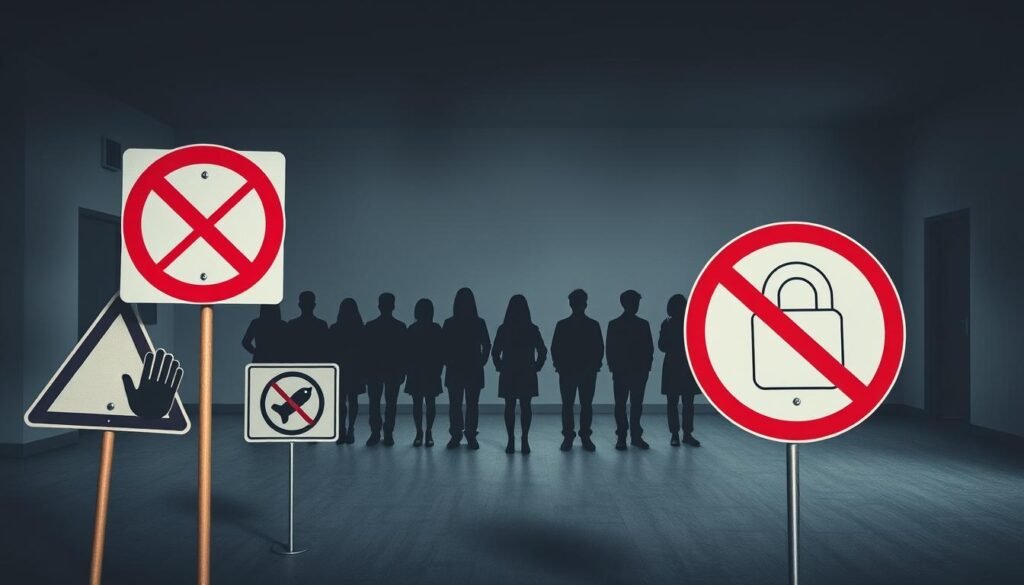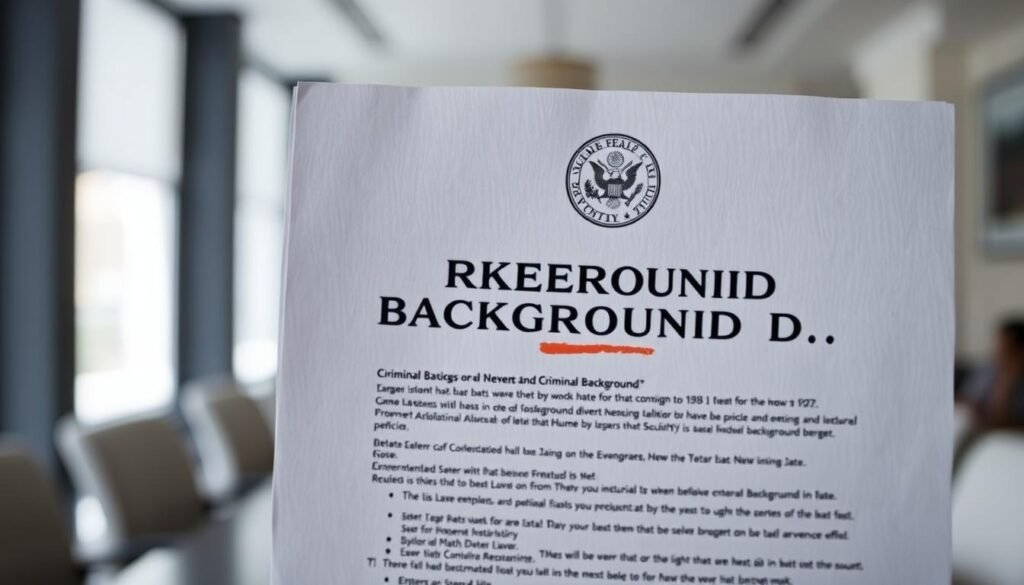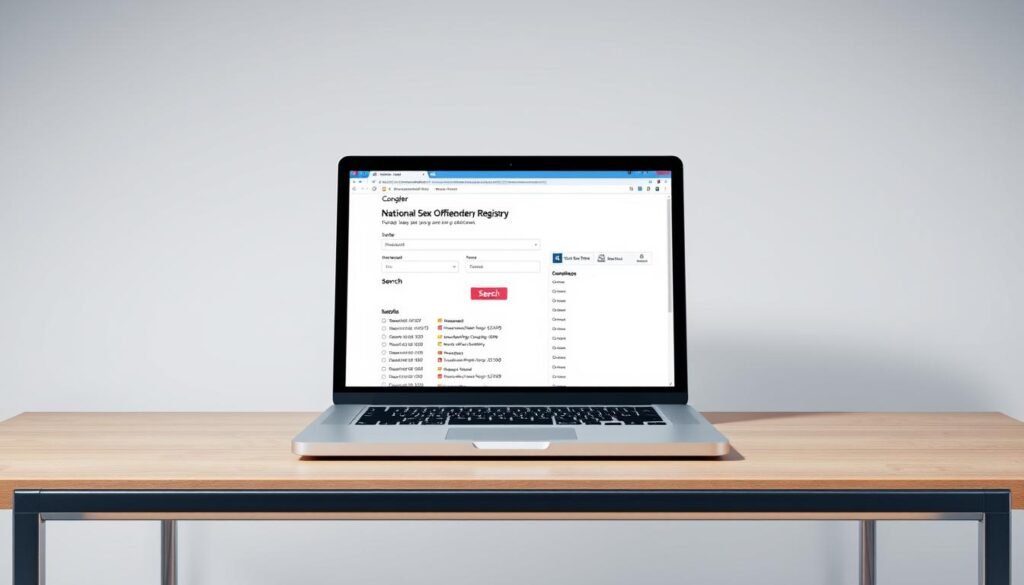
When I first considered working with children, I thought about the giggles, storytime moments, and tiny hands trusting mine. But I quickly learned daycare roles demand more than warmth—they require rigorous safety standards. Every state prioritizes child protection through strict vetting processes, and rightfully so.
Background screenings aren’t just paperwork. They’re shields against risks. Federal laws like the Child Care and Development Block Grant Act set the bar, requiring fingerprint checks and cross-referencing abuse registries. Even minor oversights—like omitting past offenses—can end an application.
This isn’t about distrust. It’s about ensuring every adult in the room deserves that responsibility. From violent crimes to falsified resumes, red flags vary but share one outcome: exclusion from this sensitive field.
Let’s explore how these protocols work, why they matter, and what specific factors irreversibly block someone from child care roles. Because when it comes to kids, “good enough” isn’t an option.
Key Takeaways
- Federal laws mandate fingerprint-based criminal history reviews for daycare staff
- State registries track child abuse cases to prevent high-risk hires
- False information on applications leads to automatic disqualification
- Violent or sexual offense histories permanently exclude candidates
- Safety protocols prioritize children’s well-being over staffing convenience
Understanding Employment Requirements in Daycare
Safety standards shape every aspect of daycare hiring. I’ve seen centers lose funding overnight for skipping one step in their vetting process. The federal CCDF Law isn’t optional—it’s the backbone of childcare compliance, requiring updated background checks every five years across all states.
Federal and State Licensing Standards
Licensing isn’t one-size-fits-all. While federal rules set minimums, states layer extra protections. Take Texas and California: one mandates monthly registry reviews, the other requires live-scan fingerprinting. Home-based providers face stricter criminal background scrutiny than facility staff in many regions.
| Requirement | Federal Standard | State Add-Ons |
|---|---|---|
| Check Frequency | Every 5 years | 2-3 years (12 states) |
| Registry Reviews | Child abuse registries | Domestic violence databases |
| Training Hours | None specified | 15+ hours (22 states) |
Why Background Checks Are Essential
I once watched a candidate’s application crumble over a forgotten DUI from 2009. Facilities can’t risk oversights. Comprehensive criminal history reviews protect against three risks:
- Undetected patterns of violent behavior
- Previous child welfare violations
- Identity fraud through fake credentials
Parents trust us with their world. A single hiring misstep could shatter that trust—and a center’s reputation. That’s why 43 states now cross-reference FBI databases alongside local background checks.
Key Components of Daycare Background Checks
Peeling back the layers of daycare vetting reveals three non-negotiable checks. These aren’t quick glances at resumes—they’re deep dives into personal history and public records. Facilities leave nothing to chance when safeguarding children.
Fingerprint and Criminal History Checks
I’ve reviewed hundreds of clearance reports. FBI fingerprint scans form the foundation, comparing ridges against national crime databases. But here’s the catch: 18 states also require checks through non-criminal systems like unemployment fraud registries.
| Requirement | FBI Check | State Check |
|---|---|---|
| Scope | National crimes | Local offenses |
| Time Frame | Lifetime | 5-7 years |
| Databases Used | NCIC | State patrol records |
Registry and Reference Screening
Child abuse registries get cross-referenced in all 50 states. I once caught a candidate’s name in a neighboring state’s neglect database—a detail local checks missed. Facilities also verify:
- Employment gaps matching incarceration periods
- Consistency in reference stories
- State-specific training certifications
One center director told me, “We call every past employer. If they hesitate, we dig deeper.” This layered approach ensures childcare environments stay secure, not just compliant.
what disqualifies you from working in a daycare

A single entry in a state registry can end a childcare career before it begins. Facilities follow zero-tolerance policies for specific criminal records, prioritizing child safety over second chances. Let’s break down the dealbreakers that permanently close doors in this field.
Red Flags in Criminal and Abuse Histories
I’ve reviewed cases where minor offenses sank applications. One candidate’s 15-year-old assault charge resurfaced during fingerprinting—automatic rejection. State laws universally block employment for:
- Violent felonies within 7 years
- Registered sex offender status (lifetime ban)
- Child abuse convictions across any jurisdiction
Even sealed juvenile records sometimes surface through FBI databases. A Florida facility recently terminated a staff member after discovering undocumented neglect charges from another state.
Impact of Refusal or Falsified Information
Omitting details proves riskier than disclosing them. Last month, a candidate listed “self-employed” during a incarceration period. Cross-checking tax records revealed the deception. Consequences escalate quickly:
| Action | Outcome |
|---|---|
| Refusing fingerprinting | Immediate application denial |
| Falsifying dates | Blacklisting from local facility networks |
| Lying about certifications | Legal action in 12 states |
Transparency matters most. I always advise candidates: “Disclose everything—let requirements determine eligibility, not suspicions.” These rules exist because trust, once broken, can’t be rebuilt with crayons and bandaids.
Navigating Drug-Related Convictions in Childcare
Many assume a drug charge permanently blocks childcare careers. But federal policies reveal surprising flexibility. The Child Care and Development Fund permits states to consider rehabilitation timelines and offense severity. I’ve seen applicants with decade-old convictions gain approval after demonstrating sustained change.
Assessing the Impact of Drug Felonies
Not all drug offenses trigger automatic bans. During a recent hiring panel, we approved a candidate with a 2012 possession charge. Key factors mattered:
- No violent or child-related charges
- Completed court-ordered rehab program
- Clean fingerprint checks for 8+ years
Home-based providers face identical scrutiny. One applicant’s sex offender registry check revealed an old meth charge—disqualifying despite state approval for facility work.
Understanding Flexibility under Federal Guidelines
CCDF rules require three proofs of rehabilitation:
- Certificates from accredited treatment programs
- Employer references spanning 3+ years
- Current clean drug tests
I advise candidates: “Gather every document. Show patterns, not promises.” Even with strict staff screening, 14 states now allow exceptions for non-violent drug histories. But fingerprints never lie—they’re the ultimate truth-tellers in this process.
Legal Implications and Licensing Procedures

Navigating daycare licensing felt like decoding legal hieroglyphics when I first applied. Each state crafts unique rules for handling criminal background checks, creating a patchwork of requirements. North Carolina’s process taught me this firsthand—applicants must submit court-certified criminal history checks alongside fingerprint cards, with refusal triggering automatic denial.
State-Specific Regulations for Criminal Records
I’ve seen permits revoked over unpaid parking tickets from 6 years back. Why? Some states mandate reviews of past five years for all offenses, not just felonies. For example:
- Texas rejects applicants with multiple misdemeanors
- Ohio permanently bars those listed on child abuse neglect registries
- California requires fresh fingerprints every license renewal
The Role of Permits and Legal Reviews
Securing a daycare permit isn’t just paperwork—it’s a legal tightrope walk. During my last application, I needed three separate criminal history checks: state patrol, FBI, and local courts. Facilities cross-verify every detail because one oversight risks:
- Fines up to $10,000 for non-compliance
- License suspension for outdated background check requirements
- Civil lawsuits if child abuse neglect history surfaces later
Staying updated on regulations protects everyone. I keep a spreadsheet tracking each state’s past five years review window—because in childcare, expiration dates matter more than milk cartons.
Comprehensive vs. Local Background Check Processes

Background checks aren’t all created equal—I learned this during a licensing audit last spring. While reviewing clearance reports, I spotted a candidate cleared locally but flagged nationally. This gap reveals why screening depth matters in family childcare settings.
What is the Comprehensive Background Check?
True comprehensive checks leave no stone unturned. They combine FBI fingerprint scans with national sex offender database cross-references and multi-state child abuse registry reviews. Here’s what sets them apart:
| Feature | Comprehensive | Local |
|---|---|---|
| Geographic Scope | 50 states + territories | Single state |
| Records Checked | FBI, offender registry, abuse databases | County courts |
| Update Frequency | Real-time alerts | Manual renewals |
Last year, a family childcare provider nearly hired someone with clean local records but an active sex offender status in another state. Only the national scan caught it.
Differences in Local Checks and Fingerprinting Requirements
Local checks work for initial screenings but miss critical patterns. I’ve seen cases where:
- State-only reviews missed child abuse reports from neighboring regions
- County fingerprinting didn’t flag expired offender registry entries
- Rural areas lacked access to national sex offender databases
Smaller family childcare operations sometimes rely on local processes due to budget constraints. But after witnessing multiple close calls, I always recommend comprehensive reviews. Kids deserve walls built with steel-reinforced data—not cardboard cutouts.
Practical Tips for Aspiring Childcare Professionals

I always tell new applicants: start with your own background check. Treat it like a preschool art project—messy but necessary. Proactive preparation separates hopefuls from hires in this field.
Preparing for Rigorous Background Screening
Run self-checks first. Pull court records from every state you’ve lived in during the past five years. Verify these match your resume dates. One candidate I coached discovered a misspelled name delaying their history check—fixed it before applying.
Create a binder with:
- Expungement orders (if applicable)
- Certificates from completed trainings
- Contact info for past employers
Update this file annually. Licensing boards often request documents covering the past five years during renewal check requirements.
Advice From Experience in the Childcare Industry
Build relationships with staff members handling clearances. I share a spreadsheet tracking my:
- Fingerprint renewal dates
- State registry check results
- Training expiration timelines
Last year, this system caught an upcoming abuse neglect database review. Saved my center from compliance fines. Transparency builds trust—directors notice candidates who own their history check details.
Remember: check requirements evolve. Subscribe to your state’s childcare licensing alerts. When Ohio expanded its abuse neglect review scope last March, prepared applicants adjusted their files months early.
Conclusion
Safeguarding children demands more than good intentions—it requires unyielding accountability. Through national sex offender registry scans and multi-state abuse database reviews, facilities build ironclad defenses. Even minor issues like a past five-year misdemeanor can derail applications if left undisclosed.
Transparency remains non-negotiable. I’ve watched seasoned providers lose credentials over forgotten convictions from decades prior. Modern checks uncover patterns, not just isolated incidents. Regular self-audits of past five-year records help applicants stay ahead of renewal cycles.
Every fingerprint submitted tells a story. Those with national sex-related offenses or violent histories write their own disqualifications. But proactive candidates thrive by maintaining clean certifications and addressing discrepancies early.
Childcare roles reward those who treat safety protocols as sacred. Whether you’re a new provider or renewing licenses, remember: integrity outshines perfection. Stay informed, stay honest, and let thorough preparation open doors to meaningful work.

Leave a Reply